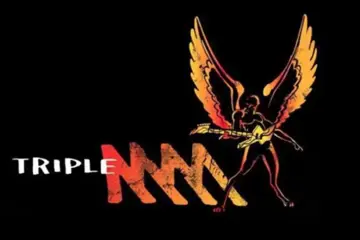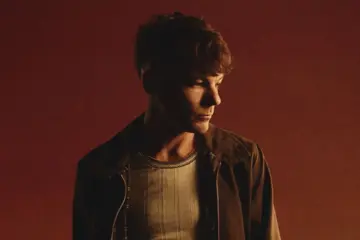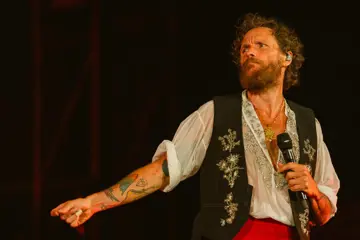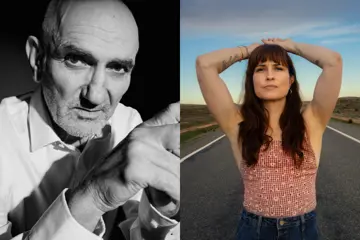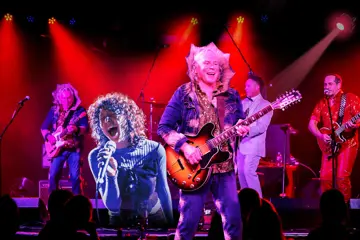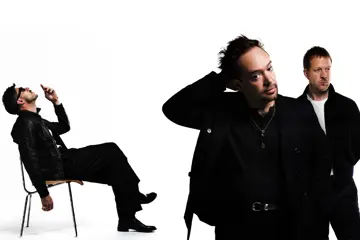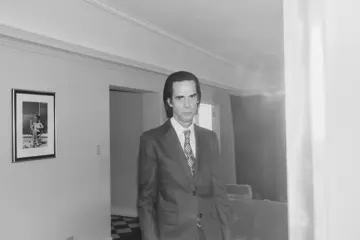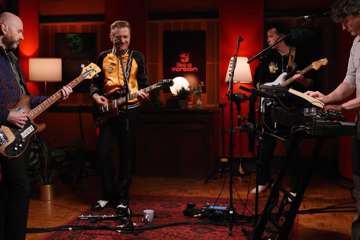It's often said that, in show business, there's no show without the business. What's a problem, is when the business becomes the show. The Internship builds on business as its foundation stone; its show a flimsy excuse to throttle viewers with an extended piece of predatory capitalism, earning its place in the annals - along with Mac & Me, The Wizard, Transformers et al - of features that have existed solely as cinematic 'sponsored content'. Product placement is as old as cinema itself: in 1896, the Lumière brothers used soap-company cash to make Parade Of The 8th Batallion, and, in return, stuck an ad on the side of a wheelbarrow-in-combat. The clunky 'words from our sponsors' of yore have, over time, morphed into indivisible Brand Integration; to the point where the parade of appearances for 'corporate partners' in cinema now scans as normal. To exist as a 21st-century human is to live in branded space, so of course films should reflect that. This really means that, to come off as some transparent piece of corporate shillery in 2013, a film has to be doing something really extreme. Like, say, turning that reprehensible MySpace sequence from Judd Apatow's Funny People into an entire movie.

"I'm googling myself while interning at Google - get it?"
Enter Vince Vaughn and Owen Wilson, redoing their fast-talking/overselling/clueless-but-lovable buddy-comedy shtick from Wedding Crashers all over again; this time for the questionably-talented guy behind those Night At The Museum movies. They're redundant salesmen that, stuck in a mid-life malaise, take up positions as summer-long interns at Google. The omnipresent search-engine's name, in this context, is the equivalent to everything great about humanity: synonymous with Dreaming Big, Change, and Making The World A Better Place. Cram your fears about big brother and data mining and mapping the planet and corporate-controlled 'freedoms': this here is the World's Greatest Company, and working there is the dream of all living creatures. The film rankles not just because it glorifies Google, but the whole cult of interning: a form of indentured servitude in which the desperation of college graduates is exploited by corporate forces; the fact that all this unpaid labour only delays cracking a dent in those spiralling college loans a key cog in the whole American financial system (which is built on bad loans, endless repayments, and a trillions of debt).
Here, Google HQ is painted in lurid, Amusement Park colours, but more than anything it resembles a university campus. Which perfectly suits The Internship's modest goals: this is just another one of those old-guys-go-back-to-college movies; Rodney Dangerfield's Back To School dressed in dot-com threads. And like the nerds of Outcast House battling the scions of Phi Richa Jerka, soon enough all the competing interns are entered into a contest that has shades of the tired, witless sports-movie: our Old Guys aligned with the Asian (and his Dragon Mom), the Indian, and people with glasses' a rag-tag group of Star Wars-loving misfits who slowly, very-expectedly band together, inspired to Dream only as Big as sticking it to Max Minghella's sneering villain (shades of Zabka, truly) and Aasif Mandvi's starched-shirt dean. It's surprising they didn't have to save the old boat shack from an unscrupulous land developer, but, hey, at least there are about five separate jokes where someone gets punched in the nuts.

Taking a break after all that nut-punching.
So go the witless comic 'romps', like a zany game of real-life Quidditch, or a wild night of partying at a strip-club that, in an even halfway-thoughtful film could function as meta-commentary on the internet's intrinsic relationship with porn, but here just reeks of lack-of-inspiration and casual-misogyny. Pointing out even these most minor pieces of 'plot' is probably giving The Internship more credit than it deserves: this is, after all, one long advertisement draped in the comic riffing of Vaughn and Wilson. Vaughn's fast-talkin' dickwad shtick was tired sometime in about the third-reel of Swingers, but Wilson has such charm that the film feels need to talk of it aloud. Telegraphed love-interest Rose Byrne (seemingly relishing talking in an Australian accent for the first time in aeons) mocks his sotto voce Southern drawl and feathered blonde hair; and Wilson has never seemed more like some real-life Wooderson, only clad in loose-fitting tan slacks, and angling for a dame his own age.
Don't miss a beat with our FREE daily newsletter
There's a bunch of hateful things about The Internship - the offensive caricatures; the comedy dead horse that is the nerdy-white-guy-talking-in-unconvincing-hip-hop-jive; the fact that everyone herein woos constantly as if their lives are a reality television show (why would people who just lost out on their so-called Dream Jobs wildly cheer the lovable-losers who took them?); the fact that things like “you connected with people, and then connected those people to information” passes as dialogue - but Wilson getting the girl is not one of those things; and Byrne's sly smile at their long-awaited smooch is unexpectedly sweet. Of course, any other low-wattage college-com would've at least made good on closing with the final kiss, but The Internship ends only as it could: with a sweeping crane shot of the Google logo, lit large and romantic; the fitting finale to a dutiful two-hour valentine to internet hegemony and corporate oligarchy.
Farewell, My Queen features plenty of standard frock-movie ingredients - palatial grounds, luxuriant finery, powdered wigs, corsetry, quivering cleavage, Sapphic scandal - yet it also finds Benoît Jacquot taking a more 'on-the-ground' approach to the period piece. It's told through the eyes of Léa Seydoux's lectrice, who spends her days scurrying through the Palace, trading gossip with her fellow servants and providing frivolity for Marie Antoinette (played well by a fidgety Diane Kruger, who's certainly come a long way from the mannequin-esque ex-model of the days of Troy). When news of the storming of the Bastille arrives in Versailles, chaos breaks out; and the scenes where Seydoux bustles through endless hallways - Jacquot jostling along, thereafter, in handheld tracking shots that suggest Russian Ark as reimagined by the Dardennes - have a sense of genuine energy; especially at night, where the contrast between candle-ight and darkness is profound. The approach is, essentially, injecting a sense of vérité into a genre that usually tends towards romantic escapism; the fact that it was shot on location at Versailles not speaking of decadent luxury, but trending realism. It's not exactly a Dogme film, but Jacquot employs a sparing score, and is drawn towards natural light, in the way it streams through palace windows, casts shadows across courtyards, bleaches out faces and casts hair aglow. Dramatically, Farewell, My Queen captures a state of alternate panic and denial; in which royal life continues apace even when it's clear that revolution is imminent. History, it's said, is told by the winners, but Jacquot captures the ken of that moment where whoever is 'winning' - whoever holds the power to dictate perception - is in flux.


